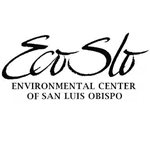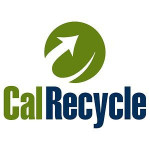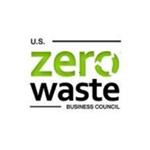Business
San Luis Obispo County is willing to assist businesses in complying with state regulations that involve solid waste and recycling services. Here you will find information and opportunities for your business to reduce, reuse, and recycle.
If you currently do not have a commercial solid waste, recycling, or organics service set up for your business, please find and contact your solid waste service provider here.
Business Compliance Requirements :
(Click to Expand)
▾
Single-Use Foodware Accessories and Condiments (AB 1276)
| As of January 1, 2022, retail food facilities may only provide single-use foodware accessories and standard condiments upon customer request. |
Additionally, the law requires the following:
- Retail food facilities may not bundle single-use foodware items.
- Retail food facilities may ask customers at drive-throughs and public airports if they want single-use foodware items.
- Third-party delivery platforms for takeout and delivery orders shall list the option to request single-use food items from their menu, and only provide those items when requested.
|
| For more information on AB 1276, click here. |
▾
Mandatory Organic Waste Reduction for Businesses (SB 1383)
For more information on SB 1383, click here.
| As of January 1, 2022, all residents and businesses are now required to divert inedible food waste & yard waste in the organic green waste bin. |
| Adding Green Bins in your Business - What is Required? The mandatory organics recycling law defines a business as a commercial or public entity (such as a school or hospital) including multifamily residential dwellings of 5 units or more. Under SB 1383, all businesses generating 2 cubic yards or more of commercial solid waste (recycling + organics recycling + disposal) and 20 gallons or more of organic waste per week shall arrange for organic waste recycling service. |
Additionally, the law requires the following:
- Place recycling and organic waste bins next to all trash bins provided for customer use, except in restrooms.
- Ensure that all bins for customers, employees and contractors meet either the color OR labeling requirements provided by the jurisdiction.
- Require that any contract or work agreement between your business/property and a gardening or landscaping service specify that yard trimmings be kept out of the trash/landfill.
- Prohibit employees from placing organic waste and recyclables in the wrong bins.
- Periodically inspect trash, recycling and organic waste bins for contamination.
|
| If your address is located in an area with a population density of less than 75 people per /square mile, you may qualify for a Mandatory Organic Recycling Requirements Waiver. If you believe you are eligible for a waiver, please fill out the forms here. |
Edible Food Recovery Program - Who Must Participate
SB 1383 requires certain food businesses to donate the maximum amount of edible food they would otherwise dispose to food recovery organizations.
The following business types are required to donate: |
Tier 1 is required to donate starting in 2022. These include:
- Food Distributors
- Food Service Providers
- Grocery Stores
- Supermarkets
- Wholesale Food Vendors
Tier 2 is required to donate starting in 2024. These include:
- Education Agencies
- Health Facilities
- Hotels
- Large Venues & Events
- State Agency Cafeterias
- Restaurant Facilities
|
To meet the requirements of SB 1383, generators must:
- Have a written agreement with the food recovery organization
- Maintain records on total pounds of food donated (template below)
- Donate the maximum amount of edible food
|
| For more information on SB 1383, click here. |
▾
Commercial & Multi-Family Organics Recycling (AB 1826)
| In October of 2014, Governor Brown signed AB 1826 Chesbro (Chapter 727, Statutes of 2014), requiring businesses to recycle their organic waste on and after April 1, 2016, depending on the amount of waste they generate per week. Effective January 1, 2016, AB 1826 (Mandatory Commercial Organics Recycling) places requirements on businesses, multi-family residences and jurisdictions to divert organic waste from the landfills. |
Who is Required to Have Mandatory Commercial Organics Recycling Services?
- Commercial businesses must recycle all organics, including food scraps and yard/green waste.
- Effective September 15, 2020, all businesses generating 2 cubic yards or more of commercial solid waste and 20 gallons or more of organic waste per week shall arrange for organic waste recycling service
- Multi-family residential complexes with 5 or more units are required to recycle their yard/green waste (e.g. landscaping). At this time, multi-family complexes are encouraged to recycle food waste but are not required to do so. More updates will be provided once this becomes available.
|
For the full AB 1826 text and list of compliance requirements, click here.
If you believe you are eligible for a waiver, please fill out the forms here. |
▾
Mandatory Commercial Recycling (AB 341)
A business (including public entities) that generates 4 cubic yards or more of commercial solid waste per week or is a multifamily residential dwelling of 5 units or more shall arrange for recycling services. Businesses can take one or any combination of the following in order to reuse, recycle, compost or otherwise divert solid waste from disposal:
- Self-haul.
- Subscribe to a hauler(s).
- Arrange for the pickup of recyclable materials.
- Subscribe to a recycling service that may include mixed waste processing that yields diversion results comparable to source separation.
A property owner of a commercial business or multifamily residential dwelling may require tenants to source separate their recyclable materials to aid in compliance with this section. |
| For more information on AB 341, click here. |
▾
Commercial Organics & Recycling Bins (AB 827)
On or before July 1, 2020, AB341 and AB1826 covered businesses must provide organics and recycling containers at front-of-house to collect waste generated from products purchased and consumed on the premises.
These containers must be placed adjacent to trash and be visible, easily accessible, and clearly marked. All bins must be properly serviced, meaning organic materials must be composted or otherwise recovered, and recyclables must be recycled. |
| For the full AB 827 text and list of compliance requirements, click here. |
▾
Integrated Waste Management Act (AB 939)
| The California Integrated Waste Management Act made all California cities, counties, and approved regional solid waste management agencies responsible for enacting plans and implementing programs to divert 25 percent of their solid waste by 1995 and 50 percent by year 2000. Later legislation mandates the 50 percent diversion requirement be achieved every year. |
| For the full AB 939 text, click here. |
▾
Additional Resources & Organizations
| Recycling in the workplace can save a business money while helping the environment. Nearly half of the waste generated in the U.S. happens at businesses, so it’s just as important as recycling at home. Here are just a few of many steps you can take to reduce waste in the workplace: |
Join EcoSLO

SLO Green Buisness: As part of the statewide California Green Business Network (CAGBN), the SLO County Green Business Program provides FREE technical assistance for small to medium size businesses to help them save money and resources.
Additional Recycling Resources: ECOSLO offers resources and information on recycling and proper waste management in SLO County. |
CalRecycle Business Assistance: You can also explore CalRecycle’s extensive resources, including Information for Coordinators of Waste Reduction and Recycling Programs and Business Waste Reduction. Business Assistance: You can also explore CalRecycle’s extensive resources, including Information for Coordinators of Waste Reduction and Recycling Programs and Business Waste Reduction. |
Zero Waste Business 
Become a Zero Waste Business Council: Receive resources and guidance on the quest to becoming a Zero Waste Business. |
▾
Conditionally Exempt Small Quantity Generator HHW